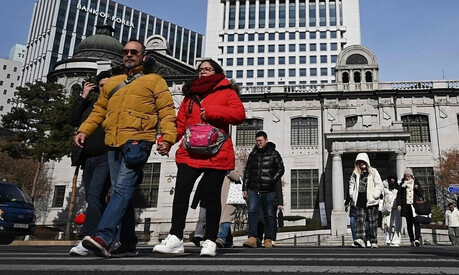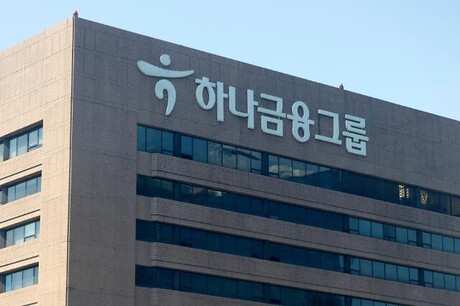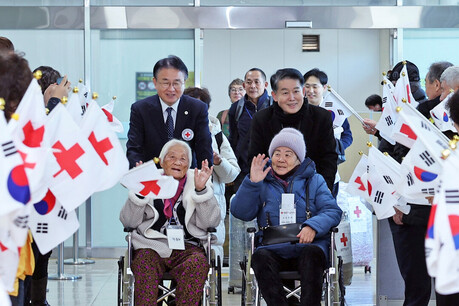
Domestic small and medium-sized integrated energy operators are gradually losing their footing amid policy changes. Small and medium-sized businesses are facing a risk of weakening competitiveness due to the government's introduction of the Korean LNG capacity market and the decline in effectiveness of the decentralization law.
Currently, there are 33 business operators carrying out district energy projects in Korea, and among them, Korea District Heating Corporation is carrying out about half of the nation's district energy projects. Large companies such as GS Power and SK E&S also account for a significant portion.
Although the market share is low, there are 30 small and medium-sized businesses among the businesses that make up the market. They have maintained their position by supplying heat to 20,000 to 30,000 households and as many as 60,000 to 80,000 households, but there are many voices saying that they are experiencing increasing difficulties due to recent policy changes and intensifying competition.
First, while tensions in the integrated energy industry are increasing ahead of the implementation of the Korean LNG capacity market pilot project, there are concerns that small and medium-sized businesses are even being threatened with survival.
According to the competitive bidding evaluation criteria for new LNG combined heat and power generation operators recently announced by the government, the price score, which is half of 50 points, is expected to be an important factor in determining whether or not a bid will be successful. However, many responses say that these evaluation standards are the most disadvantageous for small and medium-sized businesses.
Specifically, the price score is evaluated based on the net acquisition cost (NET-CONE) presented by the bidder. Accordingly, operators must be able to offer low net input costs by increasing generator efficiency and reducing fuel costs to gain an advantage in bidding.
In the end, the operator that can produce more electricity by reducing power plant construction costs and increasing efficiency will secure a competitive advantage. In fact, this means that the evaluation will inevitably be favorable to large corporations with large capital. Small and medium-sized businesses are responding that it is difficult to maintain competitiveness in a reality where it is difficult to reduce fixed costs and direct introduction is impossible.
Amid these restrictions, small and medium-sized businesses are also taking the lead in developing various survival strategies.
A representative example is securing competitiveness through a consortium with a power generation company. The Asan Tangjeong 2 integrated energy project is being carried out by JB and Korea Western Power, and Songsan Green City is being promoted by Ansan Urban Development and Korea South-East Power in the form of a consortium. In addition, the Wangsuk district is cooperating with Korea Western Power and Namyangju Co., Ltd.
At the same time, mergers and acquisitions within the industry are also actively taking place. Companies are continuously growing in size, such as Samchully's acquisition of Hucess this year and CNCITY Energy's acquisition of Daejeon Combined Heat and Power Plant last year. In addition, GS Energy acquired Mirae N Incheon Energy, Daeryun Power Generation acquired Byeolnae Energy, and SK E&S merged with Wirye Energy Service to expand its influence in the region.
However, even with these measures in place, it appears that it will be difficult for the industry's difficulties to be completely erased.
Small and medium-sized businesses had high hopes for the Special Act on Distributed Energy Activation that came into effect this year to maintain their own competitiveness, but even those expectations are turning into disappointment. Despite the fact that the Dispersion Act has been implemented since last June, criticism is being raised that discussions on compensation for the benefits of distributed energy are still at a standstill.
At the time of enactment of the law, the distributed benefits of integrated energy were emphasized as a key element in revitalizing distributed energy, and the intention was to stipulate in the law a support plan to compensate for the benefits resulting from avoidance of investment in transmission and distribution networks. However, even after the law went into effect, industry dissatisfaction is growing because clear standards and compensation plans for distributed benefits have not been established.
Accordingly, small and medium-sized businesses are emphasizing that the government and local governments should pay more attention to support and protection for small and medium-sized businesses.
An official from a small and medium-sized business said, “Despite the fact that small and medium-sized businesses play the role of distributed power sources, the current situation is threatening their survival. “Small and medium-sized businesses must survive to continue their role as a distributed power source,” he said. “More attention is urgently needed to support and protect small and medium-sized businesses at the government and local government levels.”
[Copyright (c) Global Economic Times. All Rights Reserved.]





























